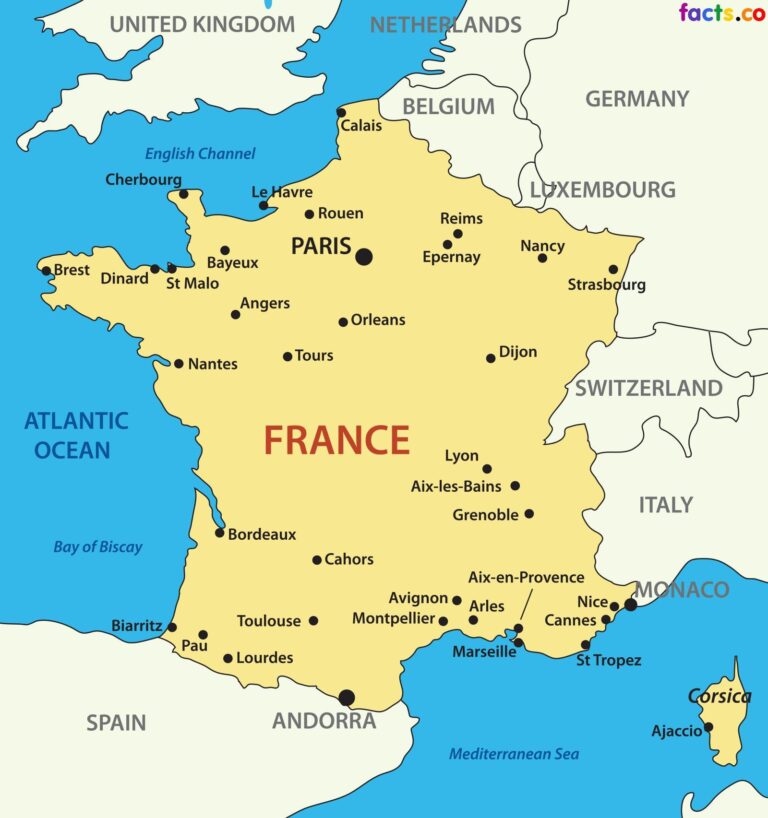France’s government is on the brink of a critical defeat as it faces a confidence vote in the National Assembly, highlighting growing political tensions amid economic and social challenges. The outcome of this vote could significantly impact President Emmanuel Macron’s administration, which has been grappling with opposition from both left-wing and right-wing factions. As the crisis unfolds, observers are closely watching the implications for France’s domestic policy and overall political stability.
France Government Faces Confidence Vote After Recent Political Turmoil
Amid escalating tensions within the French National Assembly, the government is on the brink of losing a critical confidence vote following weeks of unrest and political infighting. The ruling coalition’s grip on power has weakened, as opposition parties seize the opportunity to challenge President Macron’s leadership. Recent public demonstrations and controversial reforms have fueled dissent, putting additional pressure on lawmakers to reconsider their support for the current administration.
The vote, expected to take place later this week, highlights key issues currently dividing French politics:
- Economic policies: Disagreements over austerity measures and labor reforms.
- Social unrest: Persistent protests and strikes by unions and civic groups.
- Political alliances: Shifts in party loyalties and emerging factions within the parliament.
| Party | Seats in Assembly | Stance on Vote |
|---|---|---|
| Ruling Coalition | 260 | Divided |
| Opposition Left | 120 | Against |
| Nationalist Right | 90 | Against |
| Independent | 30 | Undecided |
Implications of Potential Defeat on National Policy and EU Relations
A possible government defeat in the confidence vote could trigger significant shifts within France’s domestic agenda. The administration’s ability to advance critical reforms-including pension restructuring and labor market overhauls-may face severe delays or outright cancellation. This political instability could embolden opposition factions, complicating efforts to pass future legislation and weakening France’s standing in the eyes of its citizens.
On the European front, Brussels will be closely monitoring the situation, as Paris plays a pivotal role in shaping EU policy on economic recovery and climate commitments. A weakened French government might erode trust among member states, hindering France’s influence on key decisions ranging from budget allocations to migration policy. Observers anticipate challenges such as:
- Reduced leverage in EU negotiations due to political uncertainty
- Delayed implementation of joint EU initiatives where France is a lead partner
- Potential re-alignment of French priorities affecting EU cohesion
| Area | Potential Impact | EU Relation Effect | ||||||||||||||||||||||||||||||
|---|---|---|---|---|---|---|---|---|---|---|---|---|---|---|---|---|---|---|---|---|---|---|---|---|---|---|---|---|---|---|---|---|
| Economic Reforms | Legislation gridlock | Weakened fiscal negotiation It looks like the table content was cut off at the end. Here’s a continuation and completion of the table with consistent formatting and content, based on the earlier sections you’ve provided:
If you want me to suggest any additional content or modify the styling further, feel free to ask! Strategies for Political Stability Amid Growing Parliamentary OppositionIn an environment marked by escalating dissent within the National Assembly, the government must recalibrate its approach to maintain governance efficacy. Building cross-party coalitions and engaging in transparent dialogue with opposition factions are essential first steps. Prioritizing policy areas with broad consensus, such as economic recovery and public health, can serve as common ground to ease tensions. Additionally, adaptive legislative strategies, including incremental policy implementation and concessions, may curtail parliamentary friction and restore confidence among hesitant lawmakers. Effective communication remains critical in navigating this turbulence. The administration should leverage public outreach initiatives to clarify intentions, counter misinformation, and rally citizen support. Instituting regular consultation forums with key political stakeholders can foster accountability and mitigate abrupt parliamentary challenges. The following table highlights core strategies and their intended parliamentary impact:
Closing RemarksAs the confidence vote looms, the French government faces mounting challenges that could reshape the country’s political landscape. The outcome will not only determine the immediate stability of Prime Minister Élisabeth Borne’s administration but may also signal broader shifts in public sentiment and parliamentary alliances. Observers across Europe are closely monitoring the developments in Paris, aware that the results may influence France’s policy direction in the coming months. Further updates will follow as the situation unfolds. |




